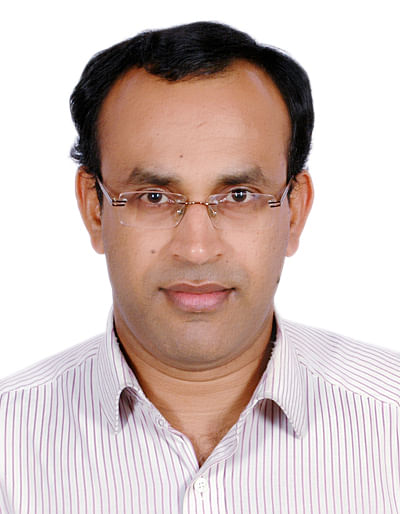'Centre working with states to improve water situation'

The government aims to reduce the time frame fixed by the United Nation to provide tap water to all households in the country from 2030 to 2024, Jal Shakti Minister Gajendra Singh Shekhawat said on Monday.
"The government aims to provide tap water to all households by 2024, reducing the time frame from 2030 as per the United Nations Resolution in this regard," the minister informed the Rajya Sabha.
As per the Niti Aayog's 'Strategy for New India @75', the per-capita water availability has decreased from 1,816 cubic metre in 2001 to 1,544 cubic metre in 2011, he said.
Shekhawat said that as reported by states on Integrated Management Information System (IMIS) of Department of Drinking Water and Sanitation, out of the total 17,25,808 rural habitations, infrastructure for providing safe drinking water as per the existing norms has been created in 13,98,292 rural habitations (81.02%).
"Out of a total rural population of 9,182.58 lakh, 7,001.42 lakh (76.25%) have the infrastructure to provide more than 40 litre per capita per day of safe drinking water," he said.
He said that the Ministry of Jal Shakti has been created by integrating the erstwhile Ministry of Water Resources, River Development and Ganga Rejuvenation and Ministry of Drinking Water and Sanitation.
The aim is to integrate water resources management so that the issues relating to water requirement for various sectors viz irrigation, drinking water, sanitation and rejuvenation of the River Ganga etc. are dealt with in a holistic manner under one umbrella.
Separately the minister launched Jal Shakti Abhiyan, a time bound mission to water conservation in two phases. The first phase of the programme will be from July 1st to September 15 and October 1st to November 30.
He said that teams of officers from the central government led by IAS officers will visit and work with district administration in 1,592 water-stressed blocks in 256 districts, to ensure five important water conservation interventions including rainwater harvesting, renovation of traditional and other water bodies/tanks, reuse, borewell recharge structures, watershed development and intensive afforestation.
Deccan Herald is on WhatsApp Channels| Join now for Breaking News & Editor's Picks